Outreach activities
We play a major role in promoting accessible technologies for interdisciplinary activities, bringing biologists together with engineers, physical scientists and social scientists. These activities range from student-led activities in Cambridge, to UK-wide collaborations in standard-setting and technical innovation, to international exchange of low-cost accessible tools for biotechnology and instrumentation. As part of this we have helped found the Engineering Biology Interdisciplinary Research Centre in Cambridge, the OpenPlant Synthetic biology Research Centre and the Biomaker initiative.
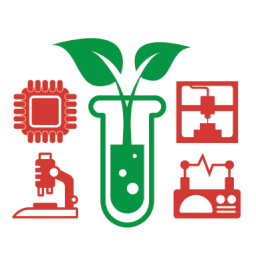
Biomaker website with information about hardware, training and educator resources - along with information about mini-projects and future opportunities. Access to free downloadable training manual and pointers to online technical information.
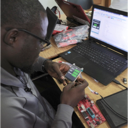
Links to international partners who have collaborated, run workshops and linked via shared projects and materials exchange.
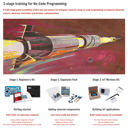
Details of a growing set of Biomaker training resources for XOD no-code programming and building instrumentation. Instructions for building devices with new sensors, actuators and display elements - all aimed at biologists and others, with no need for previous experience with programming or electronics. Download materials for study, and for organising workshops.
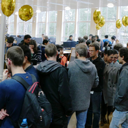
An indexed collection of around 200 interdisciplinary projects funded under different initiatives with the common aim of building interdisciplinary collaborations and open science tools. Also includes links to projects collated at the Biomaker community hub on Hackster (https://www.hackster.io/biomaker/projects).

Clearing house for interdisciplinary research in Engineering Biology at the University of Cambridge, including Cafè Synthetique, EngBio Forums, post-doc discussion group, and coordination of cross-disciplinary exchange.

One-stop live calendar and subscription details for Engineering Biology, Synthetic Biology and Maker activities in Cambridge, UK.
(https://www.meetup.com/Cambridge-Synthetic-Biology-Meetup/)
(https://www.meetup.com/Cambridge-Synthetic-Biology-Meetup/)

OpenPlant is a collaborative research initiative between the University of Cambridge, The John Innes Centre and the Earlham Institute. Our goal is to use synthetic biology for the improvement of sustainable agriculture and conservation in three key areas: development of open tools and technologies, engineering new plant traits and products, and promoting responsible innovation and research in plant biotechnology.
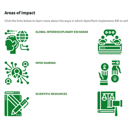
Details of Responsible Research and Innovation (RRI) activities supported through OpenPlant.
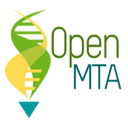
Details of the OpenMTA, a materials transfer agreement suitable for open sharing of biomaterials, and a complement to the conventional UBMTA. The OpenMTA facilitates public use of materials, where it is deemed that IP protection is unnecessary, and is intended to foster reuse and innovation of standardised materials.
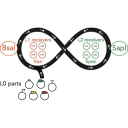
Development of open technologies that will underpin systematic approaches to bioengineering of plants:
(i) Use of the lower plant Marchantia as a simple and facile chassis for Synthetic Biology.
(ii) A common syntax for plant DNA parts and assembly of genetic circuits.
(iii) New mechanisms for regulation of gene expression.
(iv) Techniques for routine genome-scale engineering in plants.
(v) Software tools for DNA part catalogues, automated assembly, modelling of synthetic gene circuits and cellular morphogenesis.
(i) Use of the lower plant Marchantia as a simple and facile chassis for Synthetic Biology.
(ii) A common syntax for plant DNA parts and assembly of genetic circuits.
(iii) New mechanisms for regulation of gene expression.
(iv) Techniques for routine genome-scale engineering in plants.
(v) Software tools for DNA part catalogues, automated assembly, modelling of synthetic gene circuits and cellular morphogenesis.
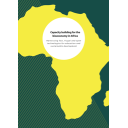
Report from a residential workshop with pan-African representation. Capacity building for the bioeconomy in Africa - identifying the need to harness fast, frugal and open technologies for education and sustainable development. Click here to download a PDF version of the report.
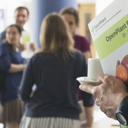
Photographic record of our Engineering Biology, OpenPlant, Biomaker and other outreach activities across the UK, Latin America and Africa.

Consolidated Twitter feeds with latest information/news about Engineering Biology, plant systems and the Cambridge lab. Also contains a continual listing of novel gizmos and technologies for DIY Biology.

Sample the history of Synthetic Biology and green plant engineering through scientific reports - with over 150 reports since the turn of the millennium. A range of sources from government agencies for policy and funding, learned societies, lobbyist groups and private industry.